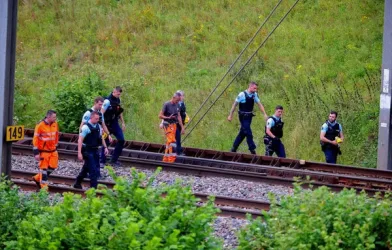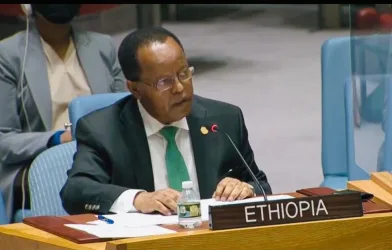

Hospitals in the Somali capital, Mogadishu, are overwhelmed by the number of injured people seeking treatment following a suicide bombing on 4 October, health officials told IRIN.
Local sources said the death toll from the explosion, caused by an Al-Shabab suicide bomber, who drove a truck loaded with explosives into a government compound in the built-up K4 area, had risen from an estimated 70 to more than 100.
Most of the injured were taken to Medina and Benadir hospitals, the two largest medical facilities in the city.
“We have 167 injured people, some very serious; there are people with 60-70 percent burns on their bodies,” Dunio Ali Mohamed, head of the medical department at Medina Hospital, said on 5 October.
She said the hospital’s main problem was finding bed space. “We had to move other in-patients to make space for the blast victims.
“Most of the injured who were brought in needed oxygen but we only have four supply sources. Every ward should have the ability to hook them [oxygen bottles] up but unfortunately we don’t have enough.”
She said the hospital had all other medications and drugs, “thanks to the ICRC [International Committee of the Red Cross]”.
A tipper truck loaded with explosives was driven into the gate of the compound housing government ministries and detonated. A spokesman for the insurgent Islamist group Al-Shabab later claimed responsibility.
The exact number of dead has not been determined but witnesses and health workers estimate more than 100 people may have died, most of them students who were checking examination results posted by the Ministry of Education.
Carnage
Ali Muse, head of the city’s ambulance services, told IRIN: “Our estimates are that between 100 and 120 people have died between yesterday and today.”
Muse said ambulance crews were having difficulty picking up the injured. “They were so burned that we could not find any part of the body to carry them; it was horrible.”
Abdirazaq Hassan Ali, director of Benadir hospital, told IRIN he had not witnessed such carnage in 20 years of civil war: “Doctors here see almost everything, but yesterday was new to us,” said Ali, who sustained slight injuries in the bombing.
“Some people were burned beyond recognition,” Ali said. “Others are fighting for their lives with most of their bodies burned.”
The problem is that there are so many body parts that have been collected and no one knows who they are
Ali said many of the injured required specialized treatment not available in Mogadishu. “There are enough doctors but we are very short on equipment and space.”
Hospital staff have been working non-stop with little or no rest, Ali said.
Yonis Dahir, a patient at Benadir hospital, was lucky. “I have no burns but shrapnel lodged in many parts of my body.”
Dahir, a student who was checking his exam results, said the explosion occurred before he got to the gate. “At first I thought something had fallen on me but I realized what had happened and I started running even though I was bleeding.”
He said he did not know how many of his friends died in the explosion. “I guess I should be grateful that I am alive but I also wonder why they targeted us.”
A local journalist told IRIN that Mogadishu was “today counting the losses, burying the dead and coming to terms with what happened”.
He said that for a city that had experienced much violence in the past 20 years, “yesterday has introduced a new level of unmitigated evil”.
He said many families were still searching for relatives. “The problem is that there are so many body parts that have been collected and no one knows who they are.”
He said people had begun burying body parts as “there is no way to identify a body, so they bury what they can find”.







